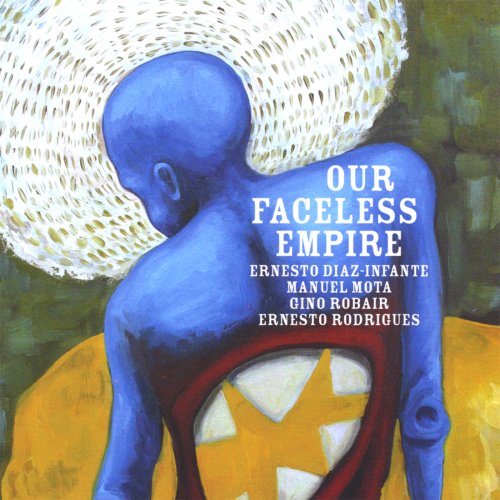Lamplight - Lampligh (2024) [Hi-Res]
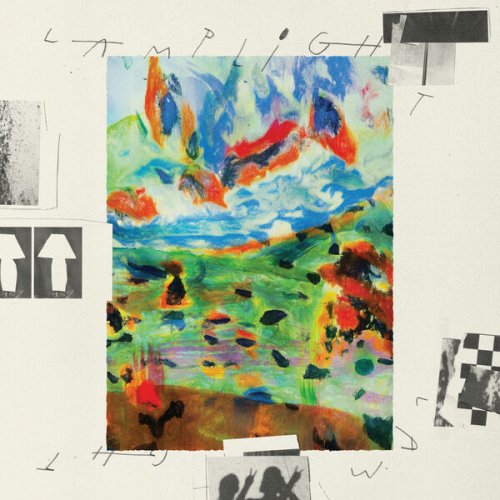
Artist: Lamplight
Title: Lampligh
Year Of Release: 2024
Label: Western Vinyl
Genre: Folk, Indie Folk, Singer-Songwriter
Quality: Mp3 320 kbps / FLAC (tracks) / 24bit-96kHz FLAC (tracks)
Total Time: 41:44
Total Size: 99.7 / 235 / 818 MB
WebSite: Album Preview
Tracklist:Title: Lampligh
Year Of Release: 2024
Label: Western Vinyl
Genre: Folk, Indie Folk, Singer-Songwriter
Quality: Mp3 320 kbps / FLAC (tracks) / 24bit-96kHz FLAC (tracks)
Total Time: 41:44
Total Size: 99.7 / 235 / 818 MB
WebSite: Album Preview
1. Play (3:35)
2. Confrontation (4:44)
3. Stillness (5:17)
4. Lamplight (2:48)
5. Call Your Mom (5:00)
6. House Rules (3:53)
7. Soft Blue (6:17)
8. Empathy (6:41)
9. Honey (3:33)
In the sway of a rural breeze, Ian Hatcher-Williams’ vocals soothe and enchant the listener on his self-titled debut album as Lamplight, which recounts his odyssey from a child raised in a Virginia cult, to a burned out tech worker in New York, and then back to Virginia, happily married to his childhood friend. Throughout the album, Hatcher-Williams explores identity as it relates to where a person is from and evolves with where they live, and how that facet of self is further compounded by the amount of agency one has over where they call home. To some extent, Lamplight is about learning when to take the reins, and when to let go—discovering what parts of yourself should be pruned, so new branches can grow.
Hatcher-Williams, born into a New Age community headquartered in southwest Virginia, spent his early years entrenched in art studies and playing in various bands, before studying design and programming at a local community college. A job opportunity led him to relocate to New York with his wife, where he would soon co-found a digital design agency, and his musical ambitions fell to the wayside. The stress of this demanding career and city life began to take a severe toll on his mental and physical health, as well as his marriage; he started dreaming of a simpler life with his partner and eventually parted ways with the company. It was a chance encounter with an old farmhouse in rural Virginia that instantly provided a much-needed sense of home, and led the unmoored pair to return to their native state. In the year between deciding he needed to move back and realizing it, Hatcher-Williams wrote and recorded what would become Lamplight, attempting to process and distill some of his experiences into songs.
Though the album has moments that hint at the antique lace and creaking floorboards of traditional folk, Lamplight skews modern, in part thanks to Kevin Copeland's (Lightning Bug) deft production. Hatcher-Williams met Copeland while living in Brooklyn, and as they got to know each other, he revealed that he’d spent years playing in bands before his career took over his life. Copeland's encouragement, in tandem with the concurrent changes in Hatcher-Williams’ career and domestic life, gave him the confidence to revisit this part of himself that felt unfinished.
The dreamlike Lamplight feels at once familiar and new; it’s a room you recognize but can’t quite place, the fragment of a memory that you can’t pin down. There’s love but also panic attacks, realizations and reckonings, questionings alongside resignations, and confrontation as well as avoidance. With a brushed and skittering 6/8 shuffle, opening track "Play" emerges over the horizon like a sunrise full of hope and potential, as Hatcher-Williams contemplates the uncertainties of returning to Appalachia. The album's title track, in a few spare lines, traces his and his partner's history from meeting at age 11, to getting married and moving to the big city, and then back to Virginia for the next stage of their lifelong relationship. In the song he weeps, knowing that one way or another their remarkable cosmic braid will come to an end. A drunken moment in a piss-soaked Brooklyn bar bathroom led to the idea for lead single "Call Your Mom"—a song that beautifully articulates the modern struggle to keep in touch with those who matter to us most. As the list of people he's drifted away from grows, so does the paralyzing inertia that keeps him from reaching out to reconnect.
Lamplight winds down with a lump-in-the-throat tenderness and spartan clarity on "Honey." Initially written to express sentiments of support and acceptance from his father, the song ends up feeling like Hatcher-Williams’ loving message to the listener: "Be kind to yourself. I'm here if you wanna talk." By the end of the album, you get the sense that Ian Hatcher-Williams has learned that he's not the dogma that over-promised and under-delivered, and he's not the youthful ambition that led him to the brink of self-destruction. He's a soft machine with limitations, improvising and adapting, seeking balance and a sense of place, just like everyone else.
Hatcher-Williams, born into a New Age community headquartered in southwest Virginia, spent his early years entrenched in art studies and playing in various bands, before studying design and programming at a local community college. A job opportunity led him to relocate to New York with his wife, where he would soon co-found a digital design agency, and his musical ambitions fell to the wayside. The stress of this demanding career and city life began to take a severe toll on his mental and physical health, as well as his marriage; he started dreaming of a simpler life with his partner and eventually parted ways with the company. It was a chance encounter with an old farmhouse in rural Virginia that instantly provided a much-needed sense of home, and led the unmoored pair to return to their native state. In the year between deciding he needed to move back and realizing it, Hatcher-Williams wrote and recorded what would become Lamplight, attempting to process and distill some of his experiences into songs.
Though the album has moments that hint at the antique lace and creaking floorboards of traditional folk, Lamplight skews modern, in part thanks to Kevin Copeland's (Lightning Bug) deft production. Hatcher-Williams met Copeland while living in Brooklyn, and as they got to know each other, he revealed that he’d spent years playing in bands before his career took over his life. Copeland's encouragement, in tandem with the concurrent changes in Hatcher-Williams’ career and domestic life, gave him the confidence to revisit this part of himself that felt unfinished.
The dreamlike Lamplight feels at once familiar and new; it’s a room you recognize but can’t quite place, the fragment of a memory that you can’t pin down. There’s love but also panic attacks, realizations and reckonings, questionings alongside resignations, and confrontation as well as avoidance. With a brushed and skittering 6/8 shuffle, opening track "Play" emerges over the horizon like a sunrise full of hope and potential, as Hatcher-Williams contemplates the uncertainties of returning to Appalachia. The album's title track, in a few spare lines, traces his and his partner's history from meeting at age 11, to getting married and moving to the big city, and then back to Virginia for the next stage of their lifelong relationship. In the song he weeps, knowing that one way or another their remarkable cosmic braid will come to an end. A drunken moment in a piss-soaked Brooklyn bar bathroom led to the idea for lead single "Call Your Mom"—a song that beautifully articulates the modern struggle to keep in touch with those who matter to us most. As the list of people he's drifted away from grows, so does the paralyzing inertia that keeps him from reaching out to reconnect.
Lamplight winds down with a lump-in-the-throat tenderness and spartan clarity on "Honey." Initially written to express sentiments of support and acceptance from his father, the song ends up feeling like Hatcher-Williams’ loving message to the listener: "Be kind to yourself. I'm here if you wanna talk." By the end of the album, you get the sense that Ian Hatcher-Williams has learned that he's not the dogma that over-promised and under-delivered, and he's not the youthful ambition that led him to the brink of self-destruction. He's a soft machine with limitations, improvising and adapting, seeking balance and a sense of place, just like everyone else.

![Batila - In Light (2026) [Hi-Res] Batila - In Light (2026) [Hi-Res]](https://img.israbox.com/img/2026-02/23/8fny4jm9awckbp30f8iv1d4uv.jpg)
![Ex Novo Ensemble - OSVALDO COLUCCINO: Emblema (2018) [Hi-Res] Ex Novo Ensemble - OSVALDO COLUCCINO: Emblema (2018) [Hi-Res]](https://img.israbox.com/img/2026-02/22/ot6pocjri3hisq06iz4768yl5.jpg)
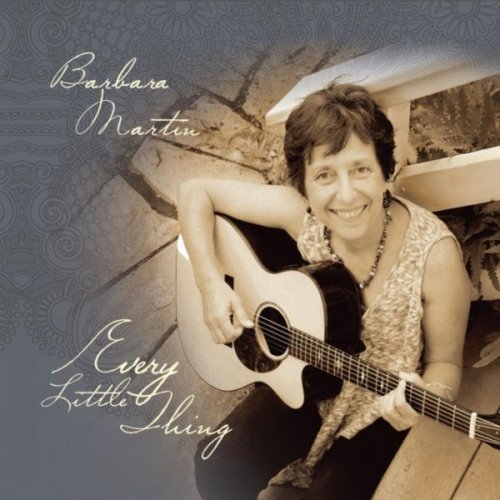
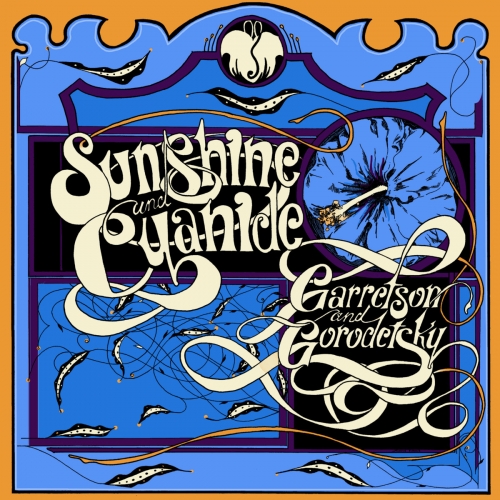

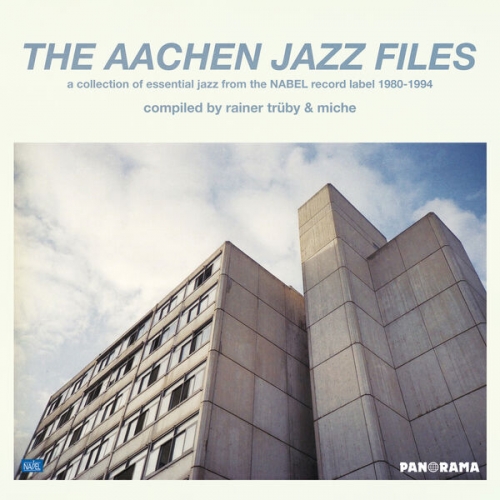
![Eero Koivistoinen - For Children (1970) [2006] Eero Koivistoinen - For Children (1970) [2006]](https://www.dibpic.com/uploads/posts/2026-02/1771615516_ff.jpg)
